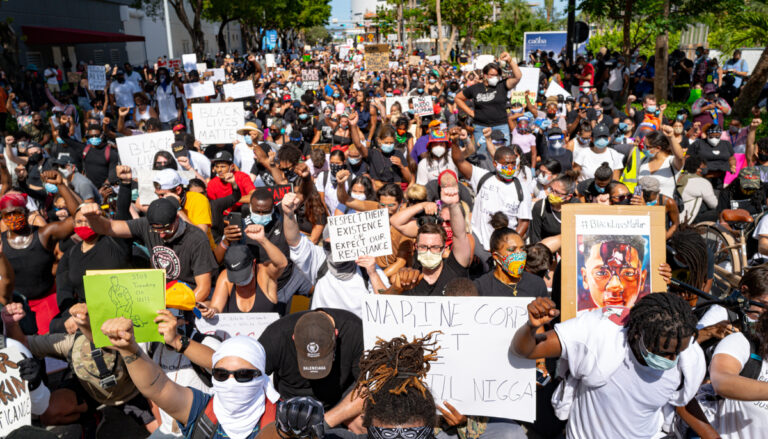The last year was a strange one by any metric. However, the onset of a pandemic at the start of the decade certainly added confusion to what turned out to be a historic and truly bizarre year.
Aside from the coronavirus, which defined much of the year, civil unrest around the world over the summer and the US presidential election in November saw a huge reckoning on the topic of race in America.
The May killing of George Floyd, an unarmed black man, by white police officer Derek Chauvin kicked off a summer full of fiery protests in cities around the world.
While Floyd’s case was the catalyst for the widespread movement, organizations like Black Lives Matter had been protesting the mistreatment of black people in the US for years prior.
Protests Show Frustrations Run Deep
Much of the country saw the protests over the summer as being justified, though the role that violence played in scattered parts of the widespread movement drew polarized reactions. On the political right, conservatives largely denounced all protests due to the violence perpetrated by a few actors in the streets.
President Donald Trump used the protests and some resulting riots as a scapegoat during his reelection campaign, seeking to paint Democratic-led cities as lawless wastelands.
However divided public sentiment seemed, the protests had a profound effect on the US. The reckoning on race led to many promises of change from police departments and mayor’s offices around the US. Time will tell whether those changes are meaningful or simply empty words meant to dissipate the public’s anger.
Division Laid Bare
The protests also confirmed what the previous four years had shown under President Trump: the country was as deeply divided in 2020 as it was in 2016. While half of poll respondents said they believed the protesters were in their right to protest, the other half felt that they were being unreasonable. Conservatives argued that the protesters were promoting anarchy by calling for the defunding of police departments.
Meanwhile, many sympathetic to the protest movement accused conservatives of arguing in bad faith, and that their moral outrage over the protests was actually a deflection.
Members of the protests, when interviewed, claimed that they felt they were being mischaracterized by conservatives as childish and unreasonable, when their demands were simply for black people to be treated as equals.
Unresolved Issues
While the protests’ intensity ramped down as the months grew colder, the issues at the heart have not been fully resolved. One of the most dramatic changes called for by some protesters involve a massive defunding of police, shifting responsibilities from armed officers to city resources.
This call has been deeply unpopular among conservatives and even moderate Democrats, however, meaning that the protests ended largely unresolved. As we look ahead to a world where Joe Biden is president and the coronavirus will hopefully become a memory, the biggest question still lingering is how the country will reconcile its relationship with race.
One wonders, without the pandemic keeping people at home, would another series of summer protests be any different? Only time will tell what the country will do with its troubling legacy of inequality.





